In Kobryn, Brest region, the GoldenBerry company that grows and sells plant seedlings to farmers is now actively developing. Today, they are placing stakes on blueberries, while gradually expanding their product range to create the alternatives for their business. Occasionally, hands-on experience gives other clues: e.g. to increase income and reduce costs they had to fine-tune the transplanting conveyor. Done!
Several years ago, Alexander Klimchuk together with his friend decided to cultivate blueberries. However after market research, they reoriented to the production of seedlings, which are multiplied through micropropagation. In practice, it means that new plants are created artificially based on the original specimen. Hence, the cuttings obtained in the laboratory are clones of the perfect specimen. In vitro plants are kept in sterile conditions for a few weeks before being sent to a plant nursery for completion of growing.
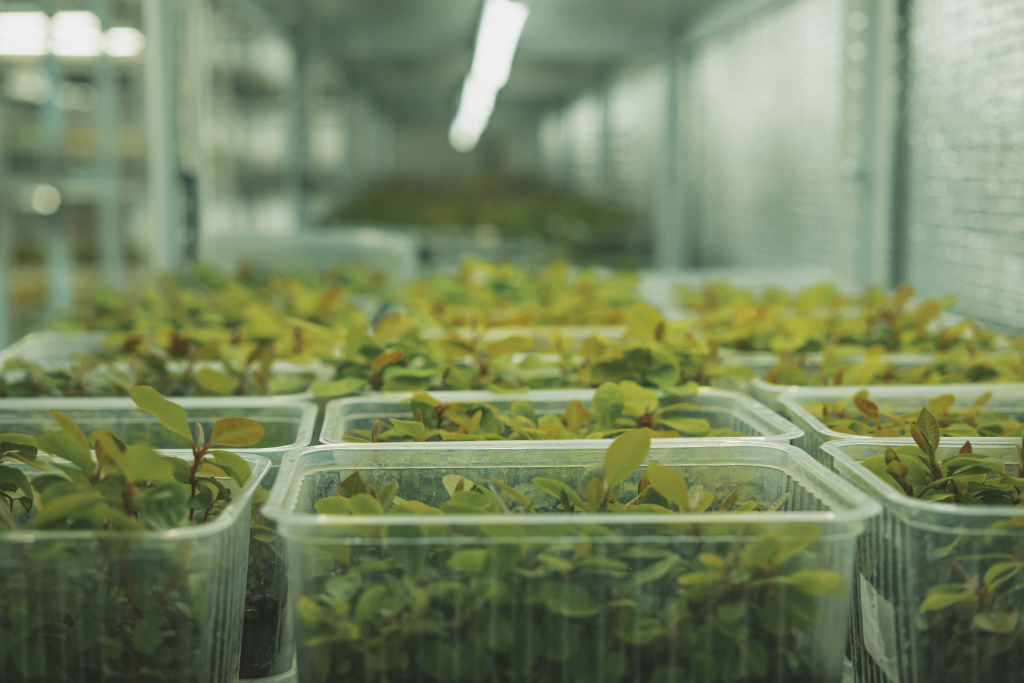
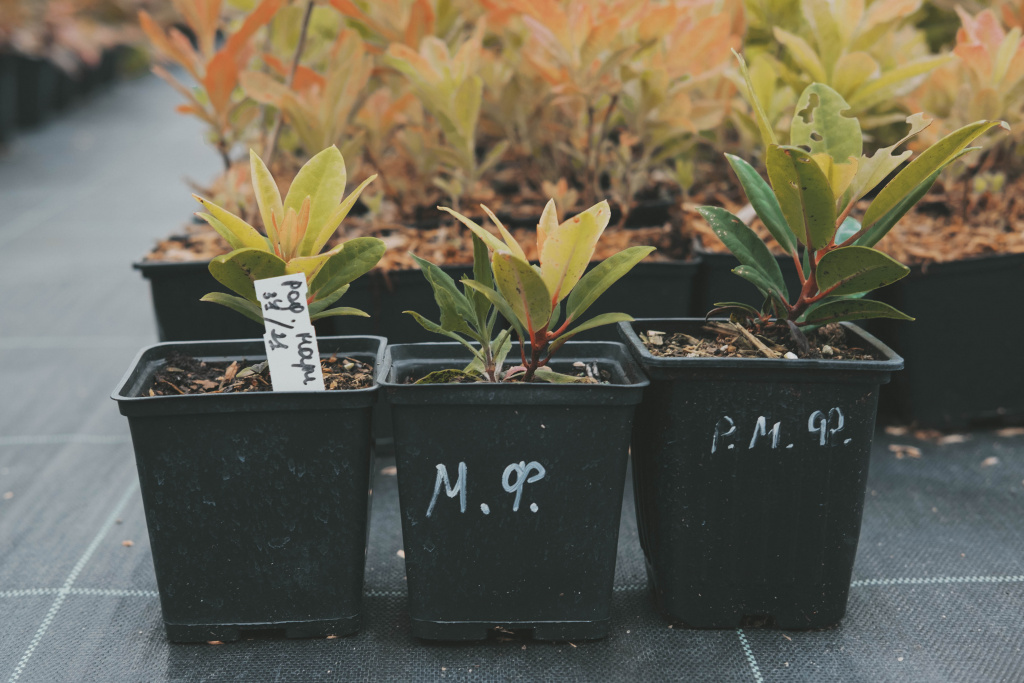
This laboratory method of producing seedlings with scrupulous observance of the technology allows to quickly grow quality planting material. The amount that farmers propagate on their plots for years, specialists will have in several weeks. Besides, as the laboratory explains, the innovative technology ensures full compliance of a plant with the desired variety and allows to obtain homogeneous, healthy and virus-free material. This is appreciated by customers, especially those for whom berry growing is their major business.
“The second part of our enterprise is the nursery itself, where plants are transplanted into pots, grown and temporarily stored,” Alexander explains.
There are three huge greenhouses, plant storage area, maintenance hangar and automated line that allows to transplant small plants from cassettes into larger pots. A part of the conveyor is potting machine with automatic fertilizer dispenser, labelling device, peat breaking machine and soil mixing machine. The equipment was purchased due to the project “Support to Economic Development at the Local Level in the Republic of Belarus” funded by the European Union and implemented by the UN Development Program (UNDP) in partnership with the Ministry of Economy of the Republic of Belarus.
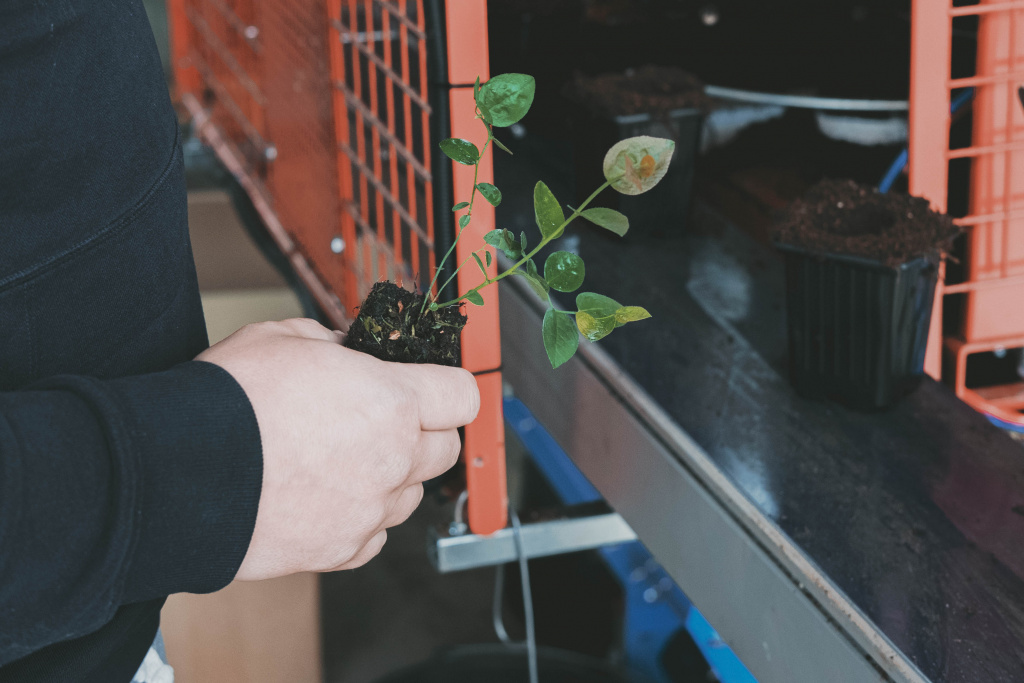
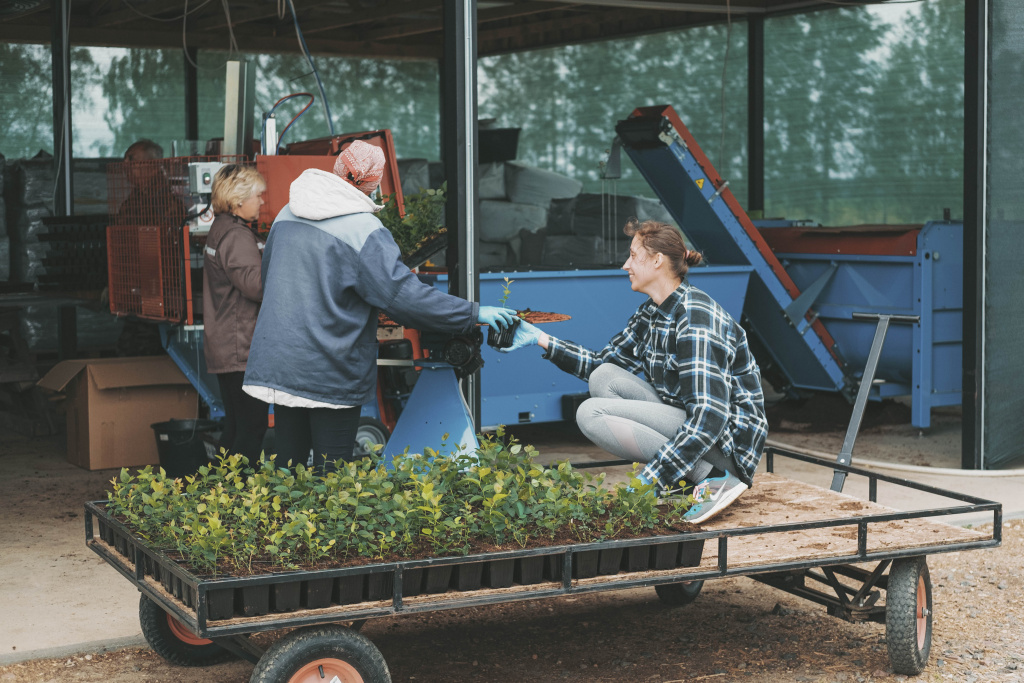
“We were in desperate need of this equipment, but could not afford it. And then an employee forwarded me an announcement about the contest of entrepreneurial initiatives for Kobryn district and we decided to participate. Our application was supported,” Alexander recalls adding, “New links in the chain directly affect our productivity and economical success.”
In GoldenBerry, you can buy a plant at any stage: small cuttings from the lab and a potted plant that is 2-3 years old. The only difference is the price: three-week cuttings cost $0.5 and a potted plant in a two-litre pot costs five times as much. This means that the bigger and the older the stocks of seedlings in storage become the more expensive they get, and it is profitable to have a stock of such plants.
“The new equipment balanced the work: the laboratory is able to produce 600,000 cuttings, and in the nursery we only could manually transplant no more than 100,000. The fine-tuned production line allows us to grow more plants, which enables us to gradually move away from selling cheaper products. This directly influences the profit,” Alexander explains. “Moreover, technical innovations and mechanical work allow the company to save about 600,000 roubles (about USD 250,000) in a six-month season. I have estimated that the return on investment in the new component of our line will not take longer than two working seasons.”
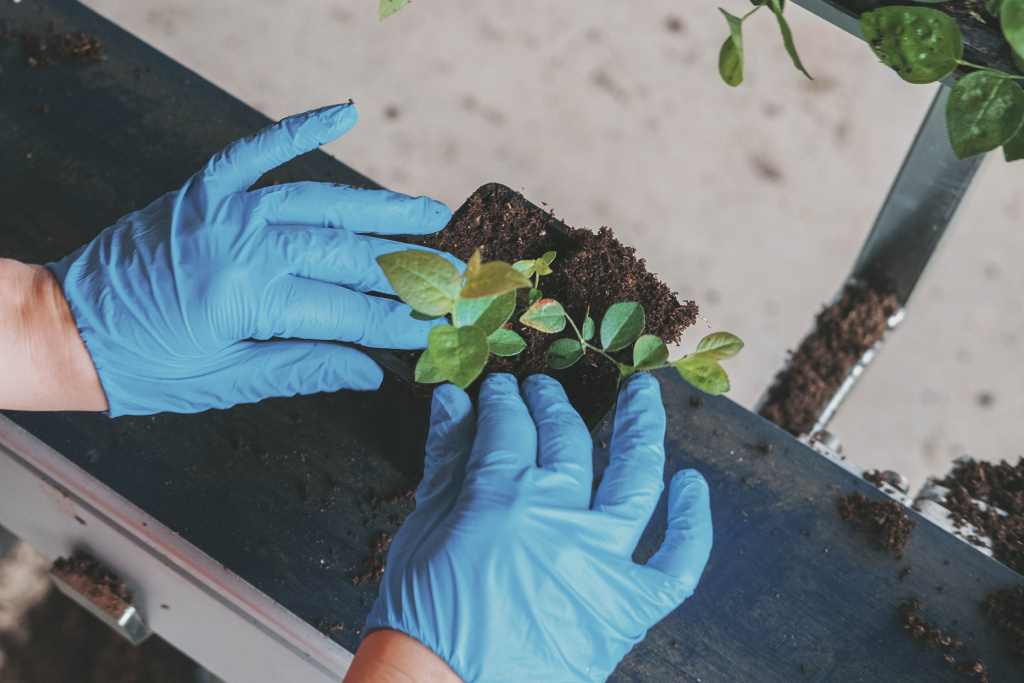
In general, the company is systematically progressing towards the production figure of one million plants per year. It is estimated to be enough to take its place in the market among the largest domestic suppliers of berry seedlings, to meet the growing demand and remain an economically sustainable business company.
“Of course, we can produce more if there is market demand. There is no profit in overproduction as the process of micropropagation is a costly affair,” the entrepreneur says.
Alexander makes a point that the support provided as part of the international technical assistance project helped close one issue but revealed another need. The nursery cannot provide enough space for additional planting material: the new volume exceeds the capacity of the existing site, so we have started to improve the new site.
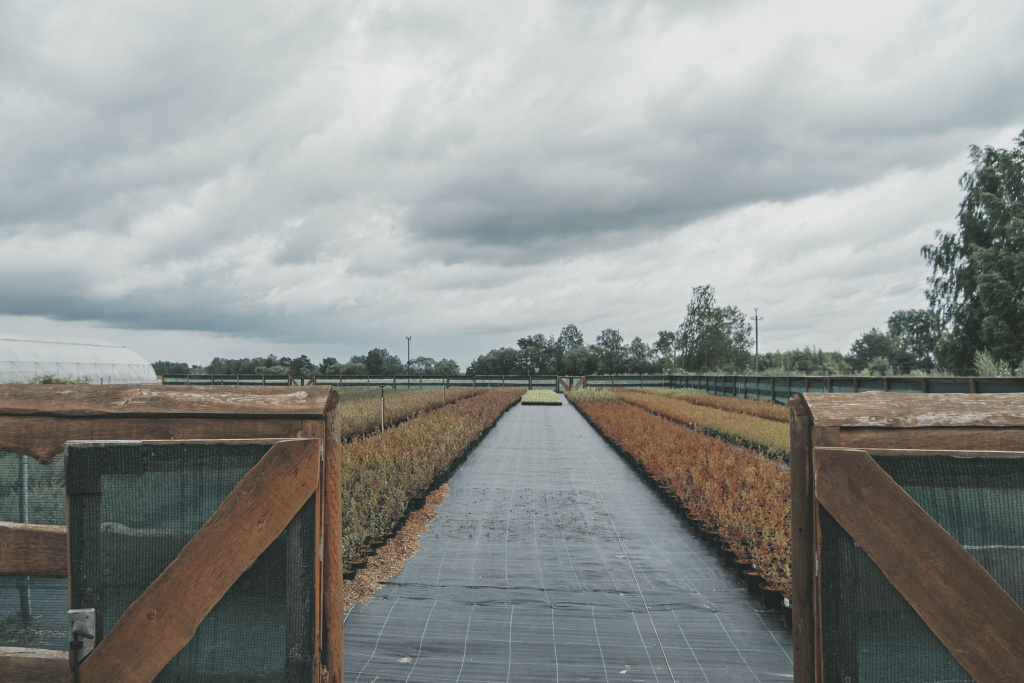
”We plan to accommodate the estimated volume of 600,000 plants on a one-hectare site. Now we are levelling the site, planning to organize an automatic irrigation system, bring electricity. All this will make it possible to organize one more working site,” Alexander says. “On the one hand, we are optimizing production processes, building convenient logistics, and on the other hand, we are ensuring the comfort for our female employees (the majority of our employees are women). Who would want to walk five kilometres a day from one site to another?”
For the sake of business sustainability, the GoldenBerry team is already opening the new ‘botanical’ frontiers. Beside berry crops (blueberries, blackberries, honeyberries), they are growing seedlings of ornamental plants: rhododendrons and hortensias.
“We do not give up berries, but we would like to have a plan B. Now we are trying to grow other plants simultaneously; by doing so we explore the demand and form a fair price of, say, rhododendrons. We have already learned that rhododendrons are in demand, but they are more fastidious than blueberries, so we will have to raise their price,” Alexander says. “Once it was the same with blueberry: at the start, we offered about 40 varieties, but only two proved popular - the ones to which farmers got used to. So now we sell these two varieties and keep a few more for offering. Some things we learn by way of trial.”
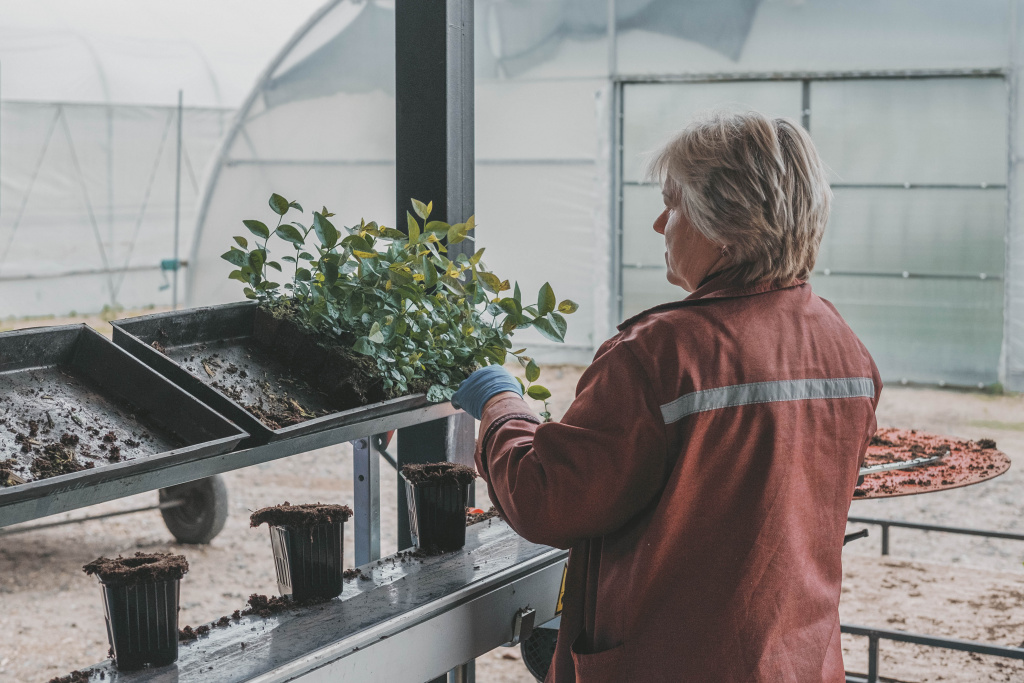
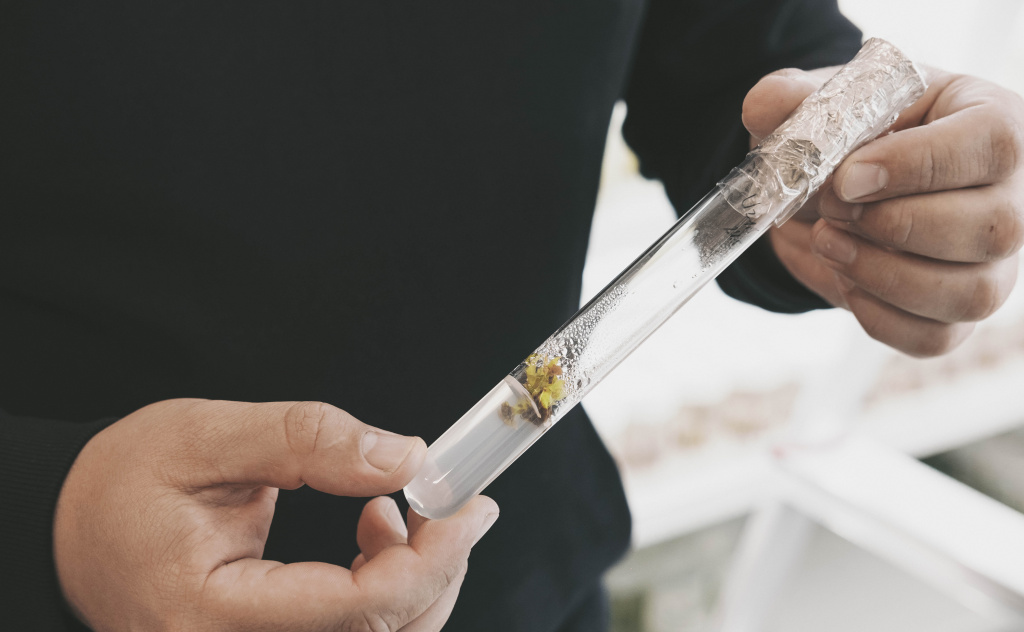
In years to come, the company is planning to become one of the leaders selling planting material of blueberries in Belarus. Apparently, there are all chances: there are capacities and the demand is constantly growing. E.g. in 2000, the area of blueberry plantations in Belarus was less than 20 hectares, today it is about 2,000 hectares and in the next three years this figure will be doubled according to the predictions of the National Academy of Sciences of Belarus. As a significant part of seedling buyers come from Russia, they are considered a promising market too.
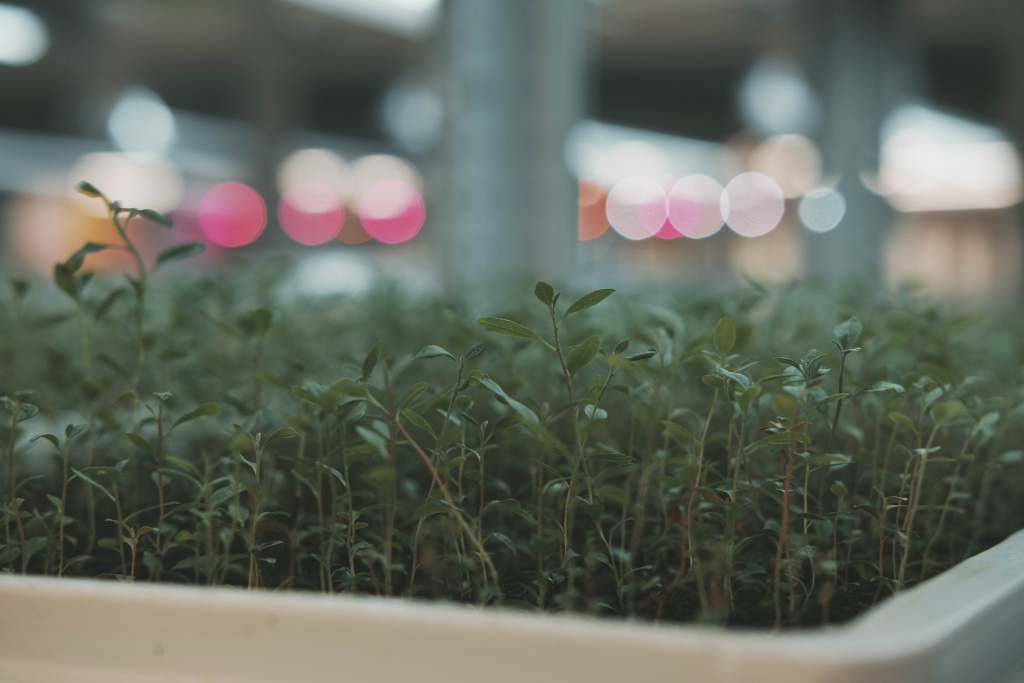
In the near future, the company aims to improve marketing channels: they update their website and develop the Instagram account. In GoldenBerry, they understand that along with the growth in production it is important to increase the volume of sales, and brand promotion in the market without information technology is much more difficult.
The development of knowledge-intensive entrepreneurship contributes to the achievement of national priorities outlined in the state program "Small and Medium Entrepreneurship for 2021-2025".
Innovation and application of scientific research results help small enterprises optimize their production using new solutions, create new products and services, get into markets and increase marketability. Developing this kind of business models help create knowledge-intensive jobs and new opportunities to spread innovation and better integrate entrepreneurship and science for local development.






